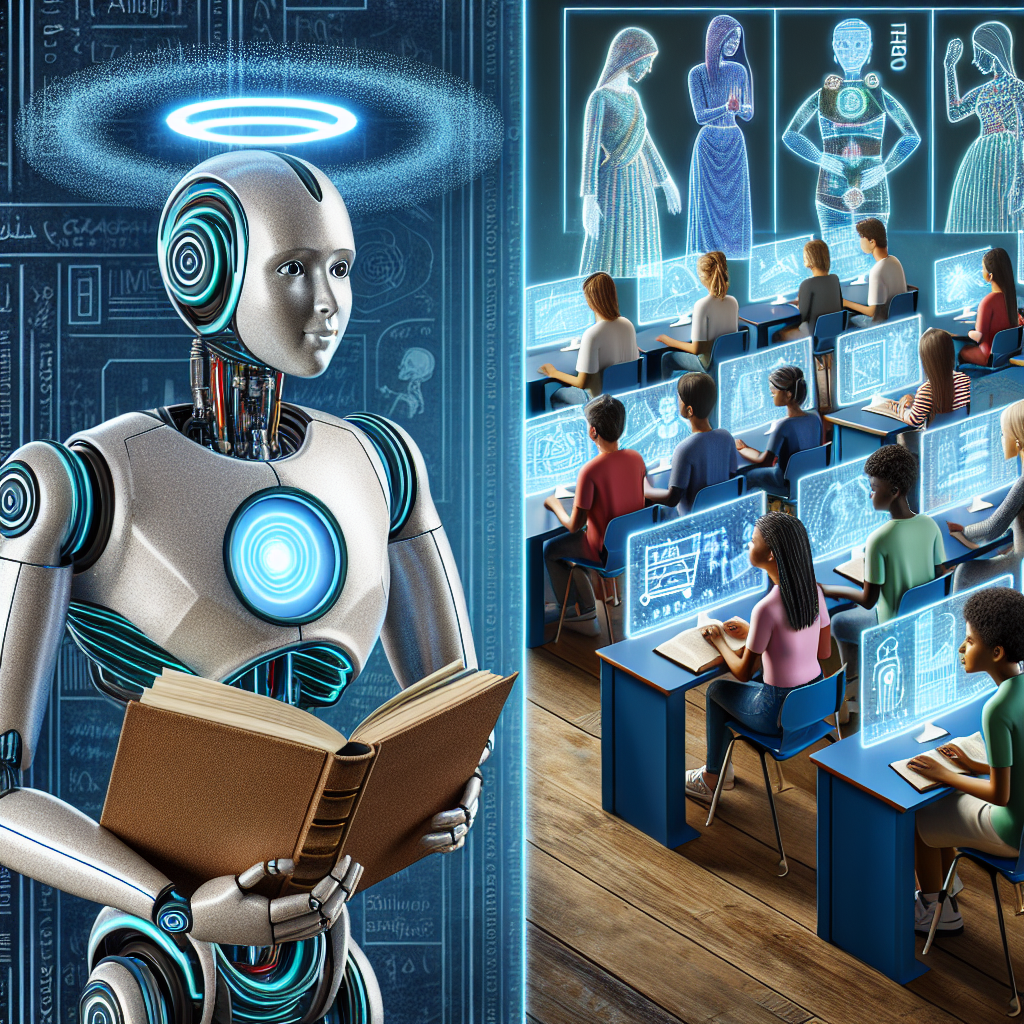Artificial Intelligence (AI) has become an integral part of our daily lives, from virtual assistants like Siri and Alexa to recommendation algorithms on streaming platforms like Netflix and Spotify. AI technology has also made its way into the field of education, offering new possibilities for personalized learning experiences and improved educational outcomes. However, as AI becomes more prevalent in education, questions around ethics and responsible use of this technology have come to the forefront.
Ethical AI refers to the development and deployment of AI systems that adhere to principles of fairness, transparency, accountability, and privacy. In the context of education, ethical AI is crucial in ensuring that the use of AI technology benefits students and educators without causing harm or perpetuating biases. As AI continues to transform the education landscape, it is essential for stakeholders to consider the ethical implications of integrating AI into educational settings.
One of the key ethical considerations in the use of AI in education is the potential for bias in AI algorithms. AI systems are trained on large datasets, which can contain biases that reflect societal inequalities. If not carefully monitored and addressed, these biases can perpetuate discrimination and exacerbate existing disparities in education. For example, an AI-powered grading system that is trained on historical data may inadvertently favor certain groups of students over others, leading to unfair outcomes.
To mitigate bias in AI systems, developers and educators must prioritize fairness and inclusivity in the design and implementation of AI technology. This includes conducting regular audits of AI algorithms to identify and address biases, as well as ensuring diversity in the datasets used to train AI models. Additionally, transparency in the decision-making process of AI systems can help stakeholders understand how AI algorithms work and hold developers accountable for any biases or errors.
Another ethical consideration in the use of AI in education is the issue of data privacy and security. AI systems collect and analyze large amounts of data, including sensitive information about students and educators. It is essential to protect this data from unauthorized access and misuse to safeguard the privacy and confidentiality of individuals. Educators and policymakers must establish clear guidelines and regulations around data collection, storage, and sharing to ensure that AI technology is used responsibly and ethically.
In addition to bias and privacy concerns, ethical AI in education also encompasses issues of accountability and transparency. AI systems can make complex decisions that impact students’ learning experiences and academic outcomes. It is crucial for educators and administrators to understand how AI algorithms arrive at these decisions and be able to explain them to students and parents. Transparency in the use of AI technology can help build trust and confidence in its applications in education.
Despite these ethical challenges, AI has the potential to revolutionize education and empower learners in new and innovative ways. AI-powered tools can personalize learning experiences, provide real-time feedback, and support educators in delivering high-quality instruction. By harnessing the power of AI responsibly and ethically, we can create a more inclusive and equitable education system that meets the diverse needs of all learners.
FAQs:
Q: How can AI be used to enhance teaching and learning in education?
A: AI can be used to personalize learning experiences for students, provide real-time feedback on academic performance, and support educators in delivering high-quality instruction. AI-powered tools can help identify areas where students may need additional support, adapt learning materials to individual learning styles, and promote student engagement and motivation.
Q: What are some examples of AI applications in education?
A: Some examples of AI applications in education include intelligent tutoring systems, virtual reality simulations, automated grading systems, and personalized learning platforms. These tools can help educators and students enhance teaching and learning experiences, improve academic outcomes, and promote student success.
Q: How can educators ensure that AI technology is used ethically in education?
A: Educators can ensure that AI technology is used ethically in education by prioritizing fairness, transparency, accountability, and privacy in the design and implementation of AI systems. This includes conducting regular audits of AI algorithms to identify and address biases, establishing clear guidelines and regulations around data privacy and security, and promoting transparency in the decision-making process of AI systems.
Q: What are some potential risks of using AI in education?
A: Some potential risks of using AI in education include bias in AI algorithms, privacy and security concerns around data collection and sharing, and challenges in accountability and transparency. It is essential for educators and policymakers to address these risks proactively and implement safeguards to protect the rights and well-being of students and educators.

